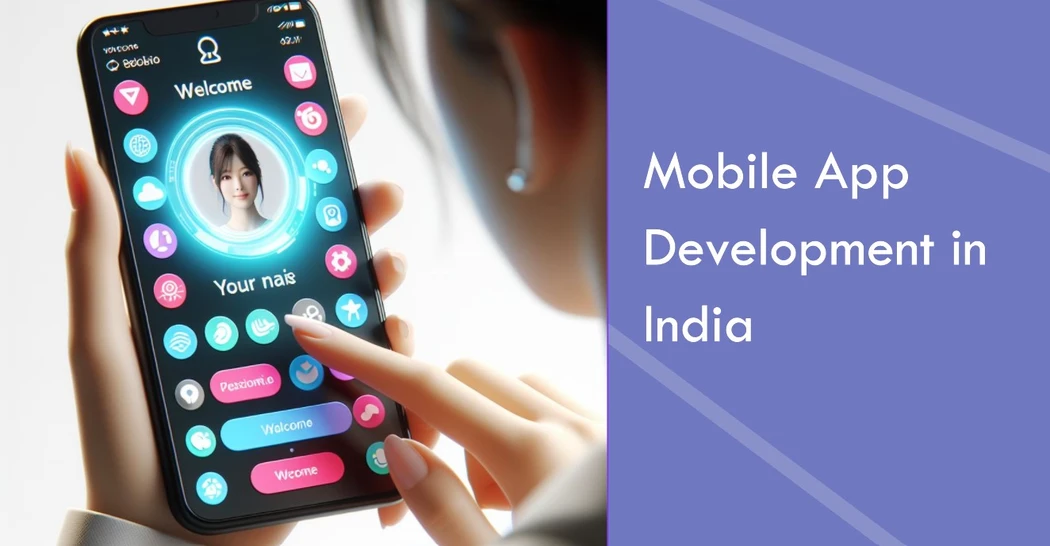Progressive Web Apps (PWAs) have arisen as a revolutionary power in the realm of computerized innovation, flawlessly overcoming any barrier between conventional web applications and local versatile applications. These cutting-edge applications are changing the way people interact with online content because they offer a harmonious combination of dependability, speed, and engagement that was previously only available in native mobile applications.
PWAs are not only reshaping the digital landscape but also redefining user expectations. This combination of features has propelled PWAs into the spotlight, making them a crucial consideration for businesses and developers looking to offer their audience an immersive and responsive digital experience.
How Do PWAs Work?
Progressive Web Apps are the transformative approach to web development that integrates the characteristics of both web and mobile apps. Below are the points given below from which we can understand how PWA works.
Responsive Design:
PWAs are created in such a way that they can be fitted to different screen sizes and gadgets smoothly. This responsiveness is achieved through responsive design techniques, ensuring that the PWA functions well on smartphones, tablets, and desktops. Web application development services prioritize creating layouts and interfaces that look and feel native on any device.
Service Workers:
Service workers are at the core of PWAs. Free from the web page, Javascript runs in the background and acts as an attorney between the PWA and the server. They enable critical features like offline functionality, background data synchronization, and caching. Service workers allow PWAs to load quickly, even in low or no network connectivity scenarios.
User Engagement:
PWAs utilize web capabilities like push notifications to engage users effectively. Push notifications enable businesses to send timely updates and messages, even when the PWA is not actively in use. This feature enhances user engagement and retention, making PWAs a valuable tool for businesses.
App Manifest:
The web application manifest is a JSON document that gives data about the PWA, like its name, symbols, show mode, and different settings. This file is crucial for making the PWA installable on a user’s device. When users visit a PWA repeatedly, browsers prompt them to install it on their home screen, just like a native app. Progressive web app development companies ensure that the manifest is configured correctly to enhance the user experience.
PWAs work by combining responsive design, service workers, app manifest, HTTPS security, and user engagement strategies to deliver a fast, reliable, and engaging user experience that bridges the gap between web and mobile applications. Progressive web app development companies play a crucial role in harnessing these technologies to create PWAs that offer a seamless and app-like experience to users across various devices and network conditions.
Why Choose Progressive Web Apps (PWAs): Revolutionizing Web Application Development
In the rapidly evolving world of web application development, Progressive Web Apps (PWAs) have arisen as a distinct advantage, offering a large group of advantages that go with them an alluring decision for organizations and clients the same. PWAs address a change in perspective in the manner web applications are fabricated and experienced, and they are rapidly building up some forward movement across enterprises. In this article, we will investigate why you ought to consider picking PWAs for your web application improvement needs, featuring the benefits they offer of real value.
Enhanced User Experience:
PWAs are created to provide a unique user experience. They offer an app-like feel with smooth animations, responsive layouts, and intuitive navigation. Users can access PWAs on various devices, and the applications adapt seamlessly to different screen sizes and orientations. This design guarantees that you may have a smooth and constant experience across any gadget, whether it is a smartphone, tablet, or desktop.
Faster Loading Speeds:
One of the standout features of PWAs is their speed. PWAs are optimized for quick loading, thanks to technologies like service workers and caching. Service workers enable PWAs to pre-cache essential resources, such as HTML, CSS, and JavaScript, which results in near-instant loading times. This speed is critical for retaining user engagement and reducing bounce rates, ultimately contributing to improved conversion rates.
Offline Access:
PWAs excel in providing offline functionality. Service workers enable PWAs to store data and assets locally, allowing users to access the application even when they are offline or have a poor internet connection. This is particularly beneficial for businesses targeting users in areas with unreliable network access or those who prefer to use apps in offline mode.
Cost-Effective Development:
Choosing PWAs can be a cost-effective solution for web application development. Unlike native mobile app development, which requires building separate apps for different platforms (iOS and Android), PWAs are cross-platform by nature. This means you can reach a broader audience with a single codebase, reducing development and maintenance costs.
Success Stories and Examples of Companies Benefiting from Adopting PWA
Progressive Web Apps (PWAs) have become a go-to solution for businesses looking to enhance their online presence and engage users effectively. These versatile web applications have a proven track record of delivering outstanding results across various industries.
Twitter Lite:
Twitter, one of the world’s leading social media platforms, recognized the need to cater to users in regions with limited internet connectivity. They turned to PWA development services to create “Twitter Lite.” This lightweight PWA loads quickly, even on slow networks, and offers an app-like experience. With highlights like pop-up messages and disconnected admittance, Twitter Light has seen a critical expansion in client commitment and client maintenance, especially in developing business sectors.
Alibaba:
Alibaba, the global e-commerce giant, leveraged PWA technology to improve its mobile web experience. Their PWA, known as “Alibaba.com,” offers fast loading times and a seamless shopping experience. Users can access product listings, make purchases, and receive timely updates via push notifications. As a result, Alibaba witnessed a 76% increase in conversions across browsers and a 14% higher click-through rate on iOS devices after adopting the PWA.
Forbes:
Forbes, a renowned publisher, embraced PWAs to enhance its mobile web presence. They partnered with a web development company to launch “Forbes Progressive Web App.” This PWA offers a smooth reading experience, faster load times, and offline access to articles. Forbes reported a 43% increase in sessions per user and a 20% increase in ad click-through rates after the PWA’s release.
Starbucks:
Starbucks, the global coffeehouse chain, introduced a PWA called “Starbucks Progressive Web App” to improve the ordering and payment experience for its customers. The PWA allows users to customize orders, locate nearby stores, and pay with their smartphones. Starbucks saw a significant boost in mobile ordering, with a 2x increase in the number of orders placed via the PWA. It also contributed to a 21% increase in customer engagement.
Flipkart:
Flipkart, India’s leading e-commerce platform, adopted PWA technology to cater to its diverse user base. The PWA, named “Flipkart Lite,” offers fast load times and offline capabilities, critical for users in regions with unreliable internet connections. Flipkart witnessed a 70% increase in conversions and a 3x increase in time spent on-site through the PWA. Additionally, it saw a 40% higher re-engagement rate among users.
Conclusion:
In conclusion, choosing PWAs for your web application development needs can significantly enhance the user experience, increase speed and performance. Offer offline access, reduce development costs, and improve discoverability. As businesses strive to stay competitive in the digital landscape, web development companies are increasingly turning to Progressive Web Apps as versatile. Effective solution for reaching a wider audience while providing a superior web application experience. If you’re considering custom web app development services. PWAs are undoubtedly a compelling option to explore, offering a future-proof approach to web application development.




